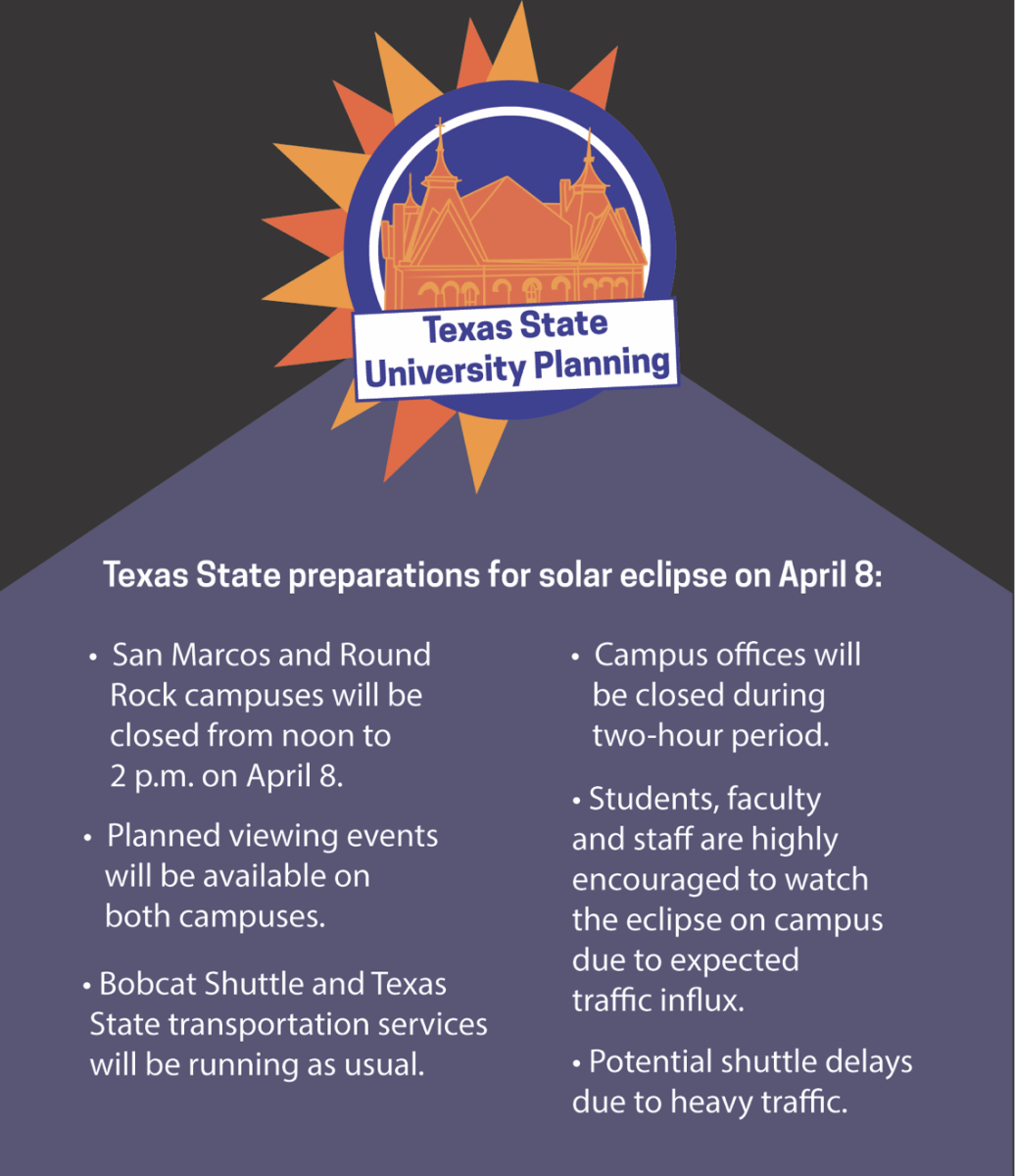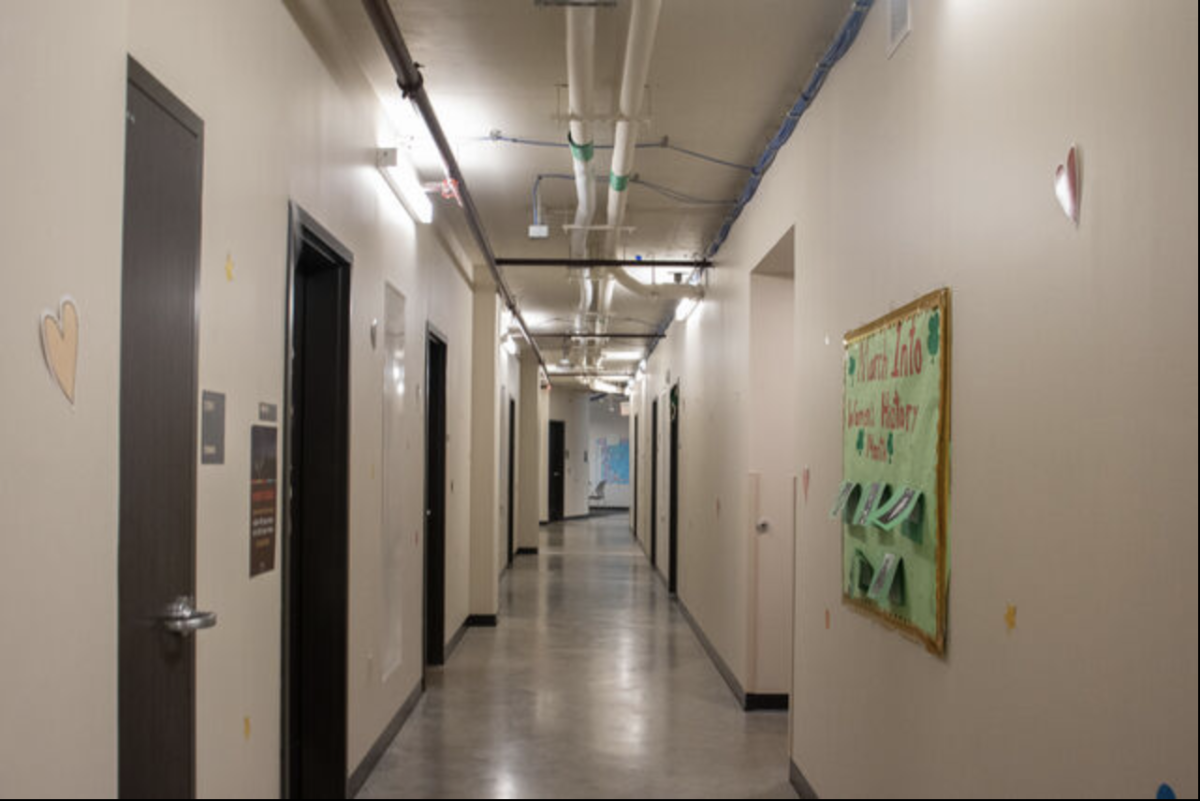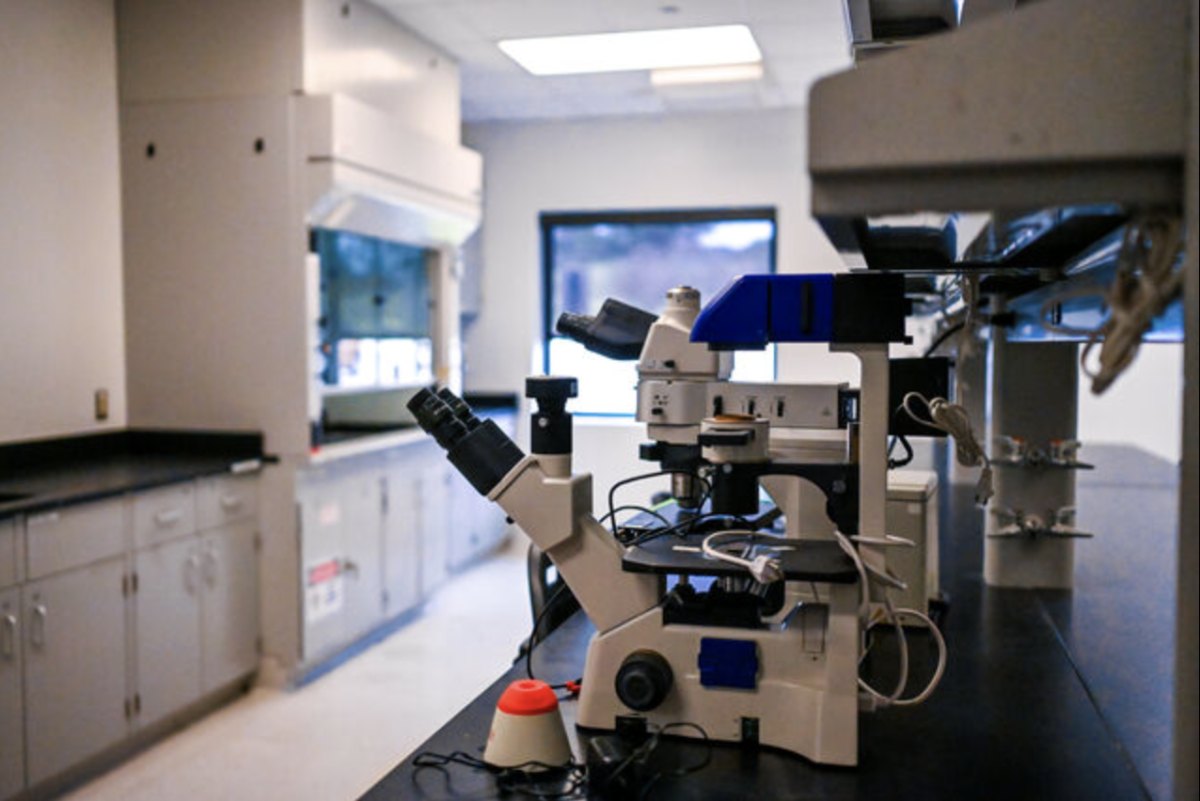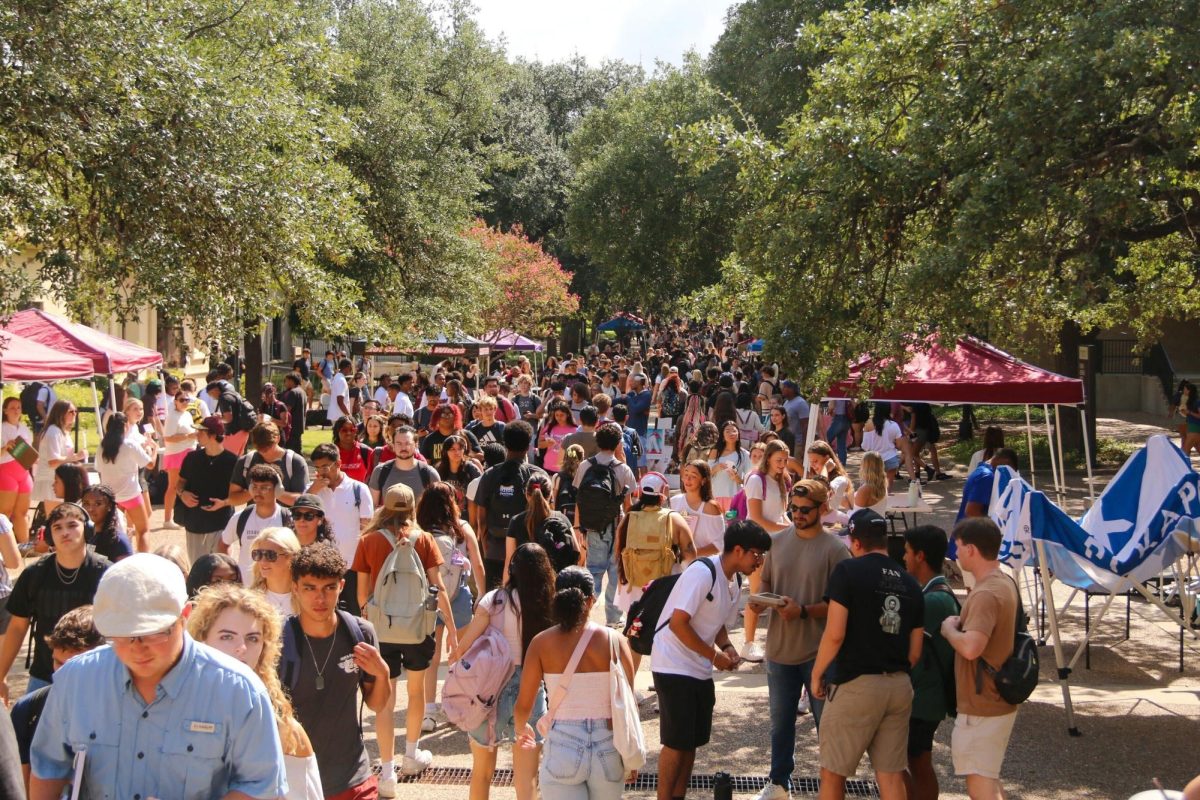Preparations are underway at Texas State as the campus anticipates Texas’s first visible total solar eclipse since 1878 on April 8.
The university suspended classes from noon to 2 p.m. on the day of the eclipse for both San Marcos and Round Rock campuses according to an email from Provost and Executive Vice President for Academic Affairs Pranesh Aswath on March 19.
“We want to make sure most people on campus have the opportunity to experience this event because this for many of them is going to be a once-in-a-lifetime opportunity to see an eclipse of this magnitude here,” Aswath said.
Aswath said faculty can decide whether to hold in-person or online classes for the rest of the day, however, he encourages everyone to experience the eclipse as it will serve as a teachable opportunity.
“This is a shared experience as part of your college and you’re not going to see this for a long time to come,” Aswath said. “So, enjoy it and take advantage of that opportunity.”
Secretary of the Texas State Astronomy Club Porter Hasha said a total solar eclipse occurs when the moon blocks the sun, casting a shadow on Earth and causing temporary darkness.
“For people in the path of totality, it’s going to get pretty much completely dark, unfortunately, San Marcos is not exactly all the way in the path of totality,” Hasha said.
Due to the eclipse’s rarity, an influx of visitors are expected in San Marcos before and during the event, potentially causing heavy traffic or temporary road closures.
Students like Kanin Okumu, a dance education freshman, are proactively planning to navigate these disruptions.
Okumu said her intention is to plan ahead for the eclipse to avoid traffic congestion and instead enjoy the experience with those around her.
“I’m a little worried about the traffic because the roads here are awful,” Okumu said. “However, I will probably try to not drive unless necessary and do grocery shopping before the eclipse.”
Aswath said transportation services such as Bobcat Shuttle will be available during the day, however delays are to be expected due to heavy traffic.
“We have a beautiful campus, beautiful spots on our campus that you can actually see the eclipse from,” Aswath said. “So why not take advantage of that and take the opportunity to stay on campus, as opposed to trying to get stuck on I-35 trying to go somewhere to get to an ideal location.”
Hasha stressed the importance of taking proper safety precautions when viewing the eclipse. Instead of regular eyewear, specialized eye protection like solar glasses or handheld solar viewers should be purchased to prevent severe eye damage.
“Do not look straight into the sun with your bare eyes; and if you are trying to take a picture with your phone, be wary of that because the sun can still damage the phone’s camera sensors,” Hasha said.
Texas has not witnessed a total solar eclipse in 176 years, with the next one expected to occur in 2044.





















